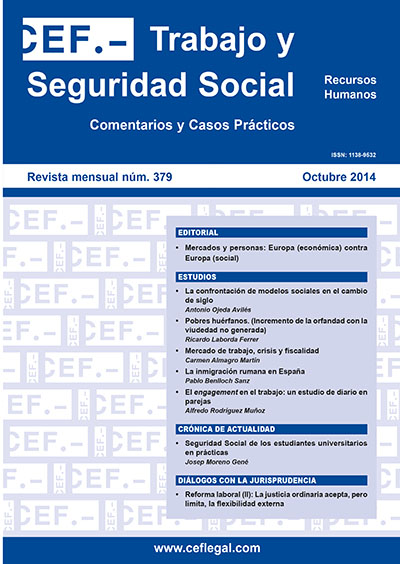Labour market, crisis and taxation
DOI:
https://doi.org/10.51302/rtss.2014.3034Keywords:
Law, work, unemployment, crisis, tax benefitAbstract
The right to work is held to be a fundamental human right and as such is included in the Universal Declaration of Human Rights, as part of the «common standard» that all peoples and nations should strive to achieve. However, in times of crisis such as the present, in which Spain is one of the countries that have been hardest hit, unemployment in our country has reached such high levels that it has become peoples' main concern (virtually every family has at least one member out of work). The situation is devastating; with around six million workers unemployed, it is quite clear that the country must continue its policies of labour reform, putting into practice active policies aimed at reducing this figure and normalizing the labour market. However, it is no less important to take measures to protect the millions who are unemployed; without a job, which constitutes the main source of income for most people, they lack the necessary resources to meet their basic needs and those of their families. Spanish society is very alive to the problems caused by this unacceptable situation, and therefore we believe it necessary to extend tax exemptions to all unemployment benefits, whatever their nature, as was the case with the 1978 Income Tax Act. In our opinion, the prevailing socioeconomic situation at that time, although difficult, was no worse than at present.



















